- Register
- Log in to Tune-In
- Wishlist (0)
-
Shopping cart
(0)
You have no items in your shopping cart.
Beatles News

Paul McCartney has announced McCartney III Imagined, a new release that features an all-star lineup of guest artists and their takes on Sir Paul’s latest album, McCartney III.
Due out April 16, the album was teased via Macca's social media channels which hinted at the guests involved. Those guest are now officially confirmed and they include Beck, Dominic Fike, Khruangbin, St. Vincent, Blood Orange, Phoebe Bridgers, Ed O’Brien, Damon Albarn, Josh Homme, Anderson .Paak, 3DRDN and Idris Elba.
Per McCartney’s website, “Personally curated by Paul, ’McCartney III Imagined’ features an A-List assortment of friends, fans and brand new acquaintances, each covering and/or reimagining their favorite ’McCartney III’ moments in their own signature styles. The result is a kaleidoscopic reinterpretation of an album ’Rolling Stone’ accurately tagged ‘an inspiration to us all’—one that serves as an extension of the instantly beloved ’McCartney III’while standing on its own as brilliant and adventurous milestone in the McCartney discography.”
Source: Erica Banas /wmmr.com

As the end of a most difficult year for many approaches, but with light on the horizon, Cavern CityTours (owners of The Cavern Club) are hoping to spread some festive cheer with the announcement of their plans to bring people together for InternationalBeatleweek festival in August 2021. Renownedas the biggest Beatles festival in the world, next year’s International Beatleweek focuses on celebrating Let It Be, The Beatles last album released in 1970 as the band broke-up and the solo albums of 1970 and 1971 including John Lennon’s most revered Imagine album and George Harrison’s All ThingsMust Pass which,couldn’t be more of an apt message of positivity at this time. Headline guests will include May Pang and Paul McCartney’s Wingsband members Steve Holley and Laurence Juber.
Source: Internationalbeatlesweek.com
details
Half a century ago, a 200-foot line of sweaty fans snaked outside the Deauville Beach Resort in Miami Beach to watch The Beatles perform. The band reached more than 70 million viewers that night in 1964 on “The Ed Sullivan Show,” and decided to stay the week at the ritzy resort on Collins Avenue in North Beach.
They made such a mark that the hotel converted part of the 12th floor into a Beatles shrine, with photographs hanging on the walls outside the rooms where they stayed.
But today, the only thing lining the outside of the long-closed Deauville is a 6-foot fence meant to keep squatters away. A giant black mesh covers the back of the hotel to keep debris from falling onto pedestrians. The mold inside is so bad that the use of a hazmat suit is advised before entry. The pool furniture is rusting away, and the palms are yellowing.
“Something has got to be done. It’s a jewel,” said Rob Precht, who saw the Beatles play at the Deauville when he was 9 years old after his famous grandfather — Ed Sullivan himself — got him in.
Source: Martin Vassolo/miamiherald.com
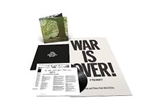
Some people say “Imagine” is the best thing John Lennon did as a solo artist. Some people are wrong.
John Lennon/Plastic Ono Band was his first proper solo album (the three experimental albums he recorded with Yoko tend to not count) and it’s nothing less than one of the greatest artists laying his soul bare. In the months between the breakup and the album’s recording, Lennon and Yoko Ono went to therapy with the famous Arthur Janov, at first spending four weeks in London undergoing “Primal Therapy.” And, for those of you who don’t know, Primal Therapy is a bit like this:
You may think that this was just a little joke, but Tears for Fears’ work (particularly their first two albums) was actually built around Roland Orbazal and Curt Smith’s fascination with Janov’s writings. But, for the record, here are some records of what these sessions were like for John Lennon. After four weeks in London, they spent four months in a rented home in Bel Air for a more intensive therapy, but, around this time, inspired by his experiences, he started to write some songs, and even recorded a few demos of “God” on July 26. He didn’t finish the thera details

The Beatles’ line-up is well known, with each of the members becoming very famous in their own right after the band split up. John Lennon and Sir Paul McCartney received particular plaudits for their songwriting and work after the band, while George Harrison and Sir Ringo Starr’s work has also been followed closely by fans. But it turns out this foursome was not the original line-up, especially on the drums.
While John Lennon, Sir Paul McCartney and George Harrison were all in The Beatles when it became thus named, Sir Ringo Starr was not.
The band started out as The Quarrymen, which has continued on since John, Sir Paul and George left to do their own thing.
They became Johnny and the Moondogs to start with, playing skiffle as well as rock and roll, whenever there was the opportunity to do so.
They played with a selection of drummers whenever they could, and later enlisted John’s friend Stuart Sutcliffe to play the bass guitar.
Source: Jenny Desborough/express.co.uk
details
Wonder if this is true?
During their years as one of the most famous rock bands in the world, the Beatles went from fresh-faced young pop stars to the voice of the “free love” generation.
As they grew and expanded their horizons, their fans also became less straight-laced. One of their most highly acclaimed albums was Sgt. Pepper’s Lonely Heart Club Band. It not only showed a new era in their remarkable talent, but it also captured the era’s interest in an unconventional and chemically enhanced experience.
While they were recording the album, they encountered a fan who claimed to be someone very special. Whether he was who he claimed to be or not, his unusual declaration earned him the chance to watch the magic one night, as the groundbreaking music was created.
According to Biography, the band that would change the music world forever started in 1957 in Liverpool, England. 16-year-old John Lennon met 15-year-old Paul McCartney, and the two music-loving teens decided to work together. By the time they signed their first music contract in 1962, they had formed an unforgettable band and made a name for themselves as the Beatles.
Source: cheatsheet.com
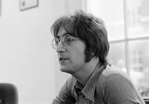
One of the most famous songs that John Lennon released during his solo career is a cover of Ben E. King’s “Stand by Me.” Both versions of the song remain famous decades after their release. This raises an interesting question: Which was more successful on the charts?
Firstly, a little background. King was a member of the group called The Drifters. He left the group. When he performed “Stand by Me,” he missed the harmonies of The Drifters, reports Rolling Stone. He recalled he was “almost in tears, singing the song. It was like an artist paintin’ a picture that’s not there. I was doin’ it and I knew it was wrong. But I guess that within that sadness I delivered something. The feelin’ was just pouring out.”
The Beatles covered the track during a session for Get Back, the album that became Let It Be, reports Rolling Stone. The cover was not featured on the final version of the album.
Source: cheatsheet.com
details
George Harrison released his ninth album, Somewhere in England, in 1981. The album received middling reviews, with Rolling Stone and Uncut awarding it two stars out of five. The album’s first released single in 1981 was rewritten to pay tribute to fellow member of The Beatles, John Lennon, after his death.
George was joined by Paul McCartney and Ringo Starr to write All Those Years Ago in November 1980 for Starr’s new album.
The recording of the song was the first time three members of the Fab Four had worked together since 1970 when the band broke up.
The Beatles split happened shortly after John’s announcement he was leaving the band in 1969. Less than a year later, in 1970, McCartney also announced he was going to make his exit.
Source: Callum Crumlish/express.co.uk
details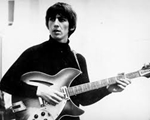
Of all George Harrison’s solo songs, “My Sweet Lord” is one of the most well-known. A classic rock star who is known for being outspoken had a very specific reaction to the song. In addition, he said one famous Rolling Stones track gave him the same feeling.
John is known for two genres of music: piano rock and glam rock. On the other hand, George delved into folk rock and religious music during his solo career. That doesn’t mean one of George’s religious songs didn’t have an impact on him. According to the book Harrison, John remembers hearing one of George’s solo records for the first time.
“I remember hearing “My Sweet Lord” in a taxi somewhere, I can’t remember what city, and I thought, “Oh, my God,” and I got chills. You know when a record starts on the radio, and it’s great, and you think, ‘Oh, what is this, what is this, what is this?’ he recalled. “The only other record I ever felt that way about was ‘Brown Sugar,’ by The Rolling Stones. ‘My Sweet Lord’ was a song that everybody sang, and whether they thought about it consciously or not, it made another train of thought spirituall details

Each of The Beatles had admirers, however, only Paul McCartney was known as “The Cute Beatle.” Paul had strong feelings about being called “cute.” Here’s what he had to say about the word in regards to some of The Beatles’ most famous songs.According to Ultimate Classic Rock, Paul discussed the moniker “The cute Beatle” during an interview with Howard Stern. Paul felt the idea he was the cute Beatle took away from his musicianship. “I hated that,” Paul said. “That’s what happens — just, ‘He’s the cute one.’ I’d go, ‘No, I’m not! Don’t call me that. I hate that! But once it’s said, it kind of sticks.” What did Paul think of his looks? “I’ve never really thought I was ‘cute,’ though I guess some people think so.”
Paul contrasted the perception of him with the perception of the other members of The Beatles. “They had to just say, ‘He’s the cute one; he’s the quiet one [George Harrison]; he’s the witty one [John Lennon]; and he’s the drummer [Ringo Starr],” Paul opined. He added “I just can’t help being cute, Ho details

Like many other artists from his generation, Bruce Springsteen was inspired by The Beatles. One wonders what the reaction to hearing The Beatles for the first time was like for The Boss. Here’s a look back at exactly what The Boss did when he first heard them. In addition, here’s a look at the foreboding prediction John Lennon made about Springsteen’s career.Firstly, some background. In his book Born to Run, Springsteen described what it was like growing up on the Jersey shore, the people, groups and institutions he encountered in his early life. He also provided a glimpse into the artists that impacted him musically during that time.
Source: cheatsheet.com
details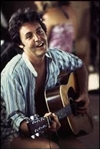
More than 60 years after his first chart hit, Paul McCartney remains one of the most iconic names in world music.
And the Beatles legend looks set to have another hit on his hands when he releases new book, Lyrics.
The 900-page tome, which is due to be released in two volumes, will chart Macca’s incredible career using his lyrics as a guide.
It will focus on more than 150 of his most famous songs and examine “the people and places that inspired them”.
The book, which is said to be “as close to an autobiography as Sir Paul may ever come”, is due out in November. Here, we look at some of the musician’s classic hits and the stories behind them.
Love Me Do, 1962
The Beatles’ first hit was jotted down in a school notebook by Macca in 1958 when he was just 15. It’s simple and repetitive in nature and has been criticised in the past for being childish.
Beatles producer George Martin did not like the lyrics at all and thought John Lennon’s harmonica solo halfway through was the best part.
Source: Richard Simpson/mirror.co.uk

On April 16, Yoko Ono Lennon and Capitol/UMe will celebrate 50 years of John's transformational and influential masterpiece, with the eight-disc super deluxe box set, John Lennon/Plastic Ono Band – The Ultimate Collection, an immersive, deep listening experience and in-depth exploration of what John described as "the best thing I've ever done." Fully authorized by Yoko Ono Lennon, who oversaw the production and creative direction, and from the same audio team that worked on 2018's critically acclaimed Imagine – The Ultimate Collection, including triple GRAMMY®-Award winning engineer Paul Hicks and mixers/engineers Rob Stevens and Sam Gannon, the Ultimate Collection puts listeners in the center of the studio and explores the album's 1970 recording sessions at EMI Studios 2 & 3, Abbey Road along with John's post-Beatles singles, "Give Peace A Chance," "Cold Turkey" and "Instant Karma! (We All Shine On)" from inception to the final master through scores of unreleased and rare demos, rehearsals, outtakes, jams and studio conversations, revealing how these beloved songs came to be. Everything in this expansive box set has been newly mixed from scratch from brand new 192kHz/24bit hi-res transfers. In addition to t details

The Beatles memorabilia reportedly valued at 'millions of pounds' might see its prices slashed after it was revealed that the band members used to fake each other's signatures, according to The Sun.
Jools Holland has a record from the Fab Four, and he revealed it was covered in autographs from the stars which were, in fact, all written by guitarist George Harrison.
The musical legend and TV presenter, 63, said on the Jools and Jim’s Joyride podcast: 'George Harrison gave me a Beatles record all signed entirely by him.
He said that when they started, they’d have to sign thousands of autographs for the Beatlemania fans so they’d all practice and know how to do each other’s.'
In 2020, a Sgt Pepper’s Lonely Hearts Club Band album dating back to 1967 was signed by the late George, Sir Paul McCartney, the late John Lennon and Ringo Starr. It reportedly sold for more than £129,000.
A sealed lock from one of the The Beatles' head was previously available on eBay for the price of £29,000.
The seller claimed the strand is genuinely from one the Fab Four - and was cut off after a tour in the 60s.
Source: Natasha Hooper/dailymail.co.uk
details
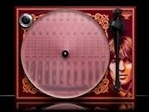
Though George Harrison was called “the quiet Beatle,” his influence on the foursome—and 20th-century popular music—was inestimable. As a member of the most famous rock band in history, and as an independent artist, Harrison forged new trails that affected music, pop culture, even fashion and haircuts. The musician, who passed away in 2001, would have turned 78 years old last week. To mark the occasion, Pro-Ject Audio Systems revealed a turntable in his honor.
The commemorative component features a plinth with the pop star’s likeness, embellished with a decidedly psychedelic-retro design. Pro-Ject worked with Bravado, Apple Corps and Studio Number One to create graphics based on the 2014 art-print lithograph designed for the Harrisons by Shepard Fairey—the artist responsible for the iconic Hope poster—and George Harrison’s personal analog recording console, visible underneath the acrylic platter.
Source: Robert Ross/sports.yahoo.com
details